Session 15: Using RI to investigate and document the impacts of the environment on human health
Wednesday, 4th December 2.00PM AEST | Breakout session
This session will examine the complex interplay between environmental factors, social determinants, climate change, and human health, focusing on the vital role of global collaboration in research infrastructures (RIs).
Key topics include investing in coordinated efforts to accelerate the translation of theoretical research into practical applications, and establishing global exposome collaborations to comprehensively study the cumulative effects of environmental exposures on health. The session will also highlight the integration of Indigenous knowledge systems to deepen our understanding of environmental changes and their impacts. By exploring these elements, we aim to identify future RI needs and foster innovative approaches to addressing global health challenges related to environmental and social factors.

Moderator
Dr Gary Miller is from the Center for Innovative Exposomics, Columbia University, USA. Dr Miller serves as Vice Dean for Research Strategy and Innovation, Professor of Environmental Health Sciences and Director of the Center for Innovative Exposomics. Dr Miller is a leader in the field of exposomics, which studies the comprehensive and cumulative effects of physical, chemical, biological, and social mediators that impact biological systems. He serves on the advisory panel of the National Institutes of Health All of Us Research Program.
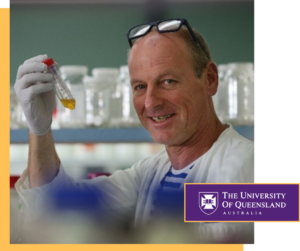
Panellist
Professor Jochen Mueller is a Professor at the Queensland Alliance for Environmental Health Sciences Faculty of Health and Behavioural Sciences, University of Queensland, Australia. Jochen is a current ARC Laureate Fellow leading a team in exposure science. Since 2002, his team has been developing long term sampling and archiving programs in population level exposure monitoring.
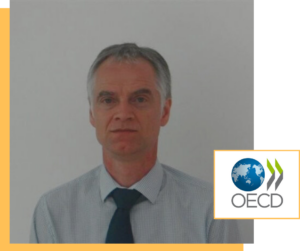
Panellist
Carthage Smith joined the OECD as head of the Global Science Forum (GSF) Secretariat in 2014. He is responsible for working with countries to define the overall strategy and priorities for the Forum. This includes policy work on research infrastructures, Open Science, research funding mechanisms, science advisory processes and research careers. Carthage was originally trained as a biochemist, with a PhD in neuroscience. Prior to joining the GSF secretariat, he was Deputy Executive Director of the International Council for Science (ICSU, Paris) for twelve years. Before moving to France, he spent six years at the UK Medical Research Council, where he was Head of International Cooperation.
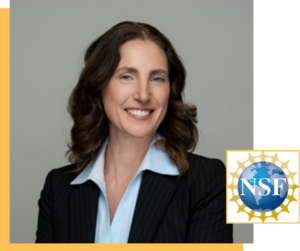
Panellist
Dr Charlotte Roehm is Acting Deputy Division Director for the Division of Biological Infrastructure in the Directorate of Biological Sciences at the National Science Foundation (NSF). She provides leadership, strategic direction, and human-capital management for research infrastructure investments, and fosters partnerships across NSF and the broader community. Since joining NSF, she has served as the cognizant Program Director for the National Ecological Observatory Network and managed the Major Research Instrumentation Program at NSF.
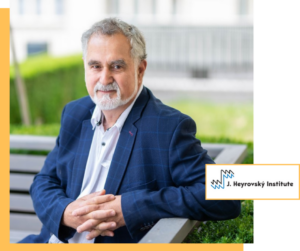
Panellist
Jan Hrušák is Senior Research Fellow at the J. Heyrovsky Institute of Physical Chemistry of the Czech Academy of Sciences. He also acts as Special Envoy for Research Infrastructures at the Ministry of Education, Youth and Sport of the Czech Republic (MEYS) and as Scientific Advisor on European Science Policy Affairs to the Czech Academy of Sciences. Jan Hrušák is a member of the European Strategy Forum on Research Infrastructures – ESFRI (Chair (2019-2021)) and the Czech delegate to the European Research and Innovation Area Committee – ERAC and the OECD Global Science Forum (GSF). He is representing Czech Republic in EOSC Steering Board, where he acts as the Vice-Cochair.
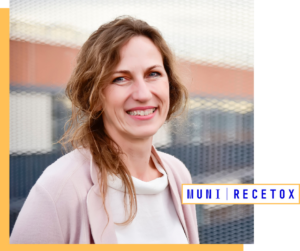
Panellist
Professor Jana Klánová is a Professor of Environmental Chemistry at Masaryk University, and a Director of RECETOX, the European Centre of Excellence in Environmental Health Sciences. She leads the national research infrastructure (MONET monitoring networks, CELSPAC population cohorts and biobanks, accredited chemical, biological and toxicological laboratories, GENASIS environmental information systems). Since 2018, she also leads the European research infrastructure on human exposome (EIRENE) prioritized in the 2021 Update of the ESFRI Roadmap. She closely collaborates with WHO and UNEP in building capacities for a global assessment of toxic exposures and leads the GEO Initiative GOS4POPs (Global Observation System for Persistent Organic Pollutants).
We acknowledge the Traditional Owners of the lands and waters throughout Australia, and pay respect to the Elders past, present and emerging. We recognise the importance of connection to culture, land, kinship and community to the health and wellbeing of Aboriginal & Torres Strait Islander families. We acknowledge the cultural practices and traditions still carried out today and being passed down to future generations.


